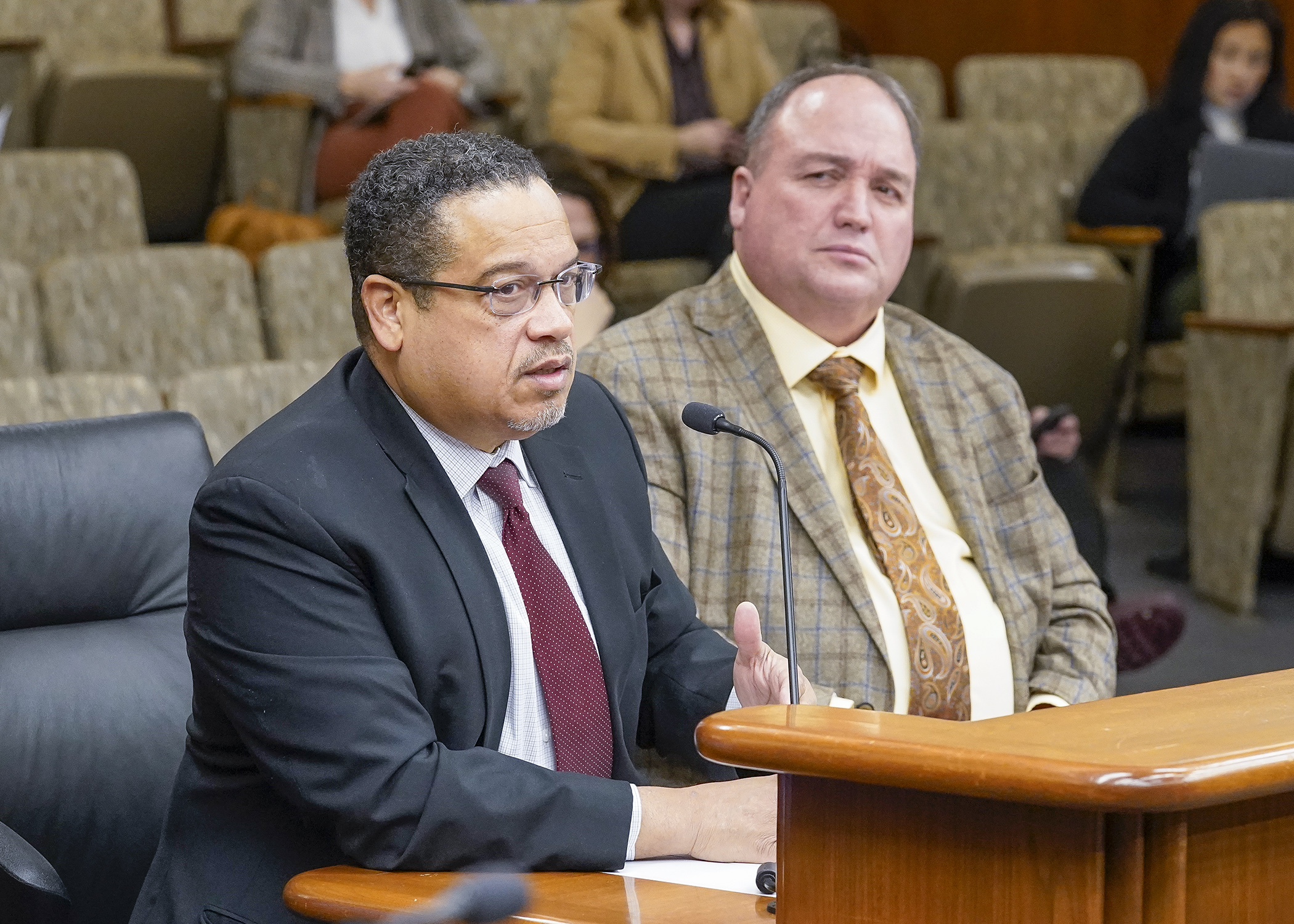Attorney general's office looks for up-to-date funding in its budget request

Through its work, the Office of the Attorney General has returned about $1.5 billion to the state over the past four years, including about $1 billion to residential and small-business utility ratepayers and another $300 million from opioid companies.
Those are examples of the office continuing to do more with less.
In 1998, the office had 510 staffers, including 260 attorneys. Those numbers are 350 and 140 now. Meanwhile, the state’s population has increased by about 1.2 million during that span, society has become more litigious, and cases more complicated.
“The General Fund base funding for the [Minnesota Attorney General's office] has been in decline for decades,” Attorney General Keith Ellison said Thursday. “Without adjustments, our General Fund appropriation for 2024-25 would represent only 65% of our base funding from 30 years ago in inflation-adjusted dollars.”
His comments came as part of an overview of the governor’s budget request for the office — a nearly $39.37 million increase from forecast base. The House State and Local Government Finance and Policy Committee took no action.
There are three themes to the $12.68 million ongoing needs ask for each year of the upcoming biennium: attract and retain top talent, ensure sufficient staff, and technology modernization.
Ellison said salary gaps between attorneys in his office and those of other major public law offices and private practice continues to grow, which, in turn, can equal a loss of vital experience.
“We have a long way to go with not only raising staff salaries to sustainable levels, but in restaffing the office to do the work of a 21st century public law office,” he said. “On the legal side of the office, we’re requesting funding for more attorneys in consumer protection, wage theft, antitrust, charities, and post-conviction review. We’re also requesting funding for a civil rights division in the attorney general’s office, which we, based on our experience, believe is long overdue.”
Non-legal staff increases would be in technology training, security, human resources, finance, policy, and communications.
“All of them are essential for meeting Minnesota’s needs,” Ellison said. As an example, the office’s consumer division took more than 52,000 calls last year.
Other requests include $9.97 million in fiscal year 2024 for a one-time operating adjustment to partially offset the lack of prior funding and $2.02 million annually to aid prosecutions in Greater Minnesota. However, a separate bill (HF29/SF33*) containing the latter request is scheduled for a House vote Feb. 6. It was passed 35-32 by the Senate on Monday.
Related Articles
Search Session Daily
Advanced Search OptionsPriority Dailies
Speaker Emerita Melissa Hortman, husband killed in attack
By HPIS Staff House Speaker Emerita Melissa Hortman (DFL-Brooklyn Park) and her husband, Mark, were fatally shot in their home early Saturday morning.
Gov. Tim Walz announced the news dur...
House Speaker Emerita Melissa Hortman (DFL-Brooklyn Park) and her husband, Mark, were fatally shot in their home early Saturday morning.
Gov. Tim Walz announced the news dur...
Lawmakers deliver budget bills to governor's desk in one-day special session
By Mike Cook About that talk of needing all 21 hours left in a legislative day to complete a special session?
House members were more than up to the challenge Monday. Beginning at 10 a.m...
About that talk of needing all 21 hours left in a legislative day to complete a special session?
House members were more than up to the challenge Monday. Beginning at 10 a.m...